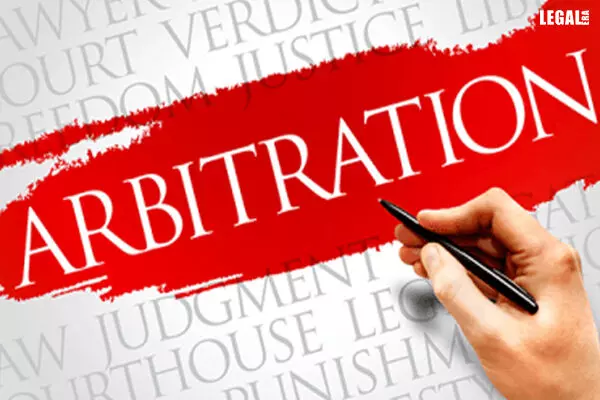- Home
- News
- Articles+
- Aerospace
- AI
- Agriculture
- Alternate Dispute Resolution
- Arbitration & Mediation
- Banking and Finance
- Bankruptcy
- Book Review
- Bribery & Corruption
- Commercial Litigation
- Competition Law
- Conference Reports
- Consumer Products
- Contract
- Corporate Governance
- Corporate Law
- Covid-19
- Cryptocurrency
- Cybersecurity
- Data Protection
- Defence
- Digital Economy
- E-commerce
- Employment Law
- Energy and Natural Resources
- Entertainment and Sports Law
- Environmental Law
- ESG
- FDI
- Food and Beverage
- Gaming
- Health Care
- IBC Diaries
- In Focus
- Inclusion & Diversity
- Insurance Law
- Intellectual Property
- International Law
- IP & Tech Era
- Know the Law
- Labour Laws
- Law & Policy and Regulation
- Litigation
- Litigation Funding
- Manufacturing
- Mergers & Acquisitions
- NFTs
- Privacy
- Private Equity
- Project Finance
- Real Estate
- Risk and Compliance
- Student Corner
- Take On Board
- Tax
- Technology Media and Telecom
- Tributes
- Viewpoint
- Zoom In
- Law Firms
- In-House
- Rankings
- E-Magazine
- Legal Era TV
- Events
- News
- Articles
- Aerospace
- AI
- Agriculture
- Alternate Dispute Resolution
- Arbitration & Mediation
- Banking and Finance
- Bankruptcy
- Book Review
- Bribery & Corruption
- Commercial Litigation
- Competition Law
- Conference Reports
- Consumer Products
- Contract
- Corporate Governance
- Corporate Law
- Covid-19
- Cryptocurrency
- Cybersecurity
- Data Protection
- Defence
- Digital Economy
- E-commerce
- Employment Law
- Energy and Natural Resources
- Entertainment and Sports Law
- Environmental Law
- ESG
- FDI
- Food and Beverage
- Gaming
- Health Care
- IBC Diaries
- In Focus
- Inclusion & Diversity
- Insurance Law
- Intellectual Property
- International Law
- IP & Tech Era
- Know the Law
- Labour Laws
- Law & Policy and Regulation
- Litigation
- Litigation Funding
- Manufacturing
- Mergers & Acquisitions
- NFTs
- Privacy
- Private Equity
- Project Finance
- Real Estate
- Risk and Compliance
- Student Corner
- Take On Board
- Tax
- Technology Media and Telecom
- Tributes
- Viewpoint
- Zoom In
- Law Firms
- In-House
- Rankings
- E-Magazine
- Legal Era TV
- Events
Delhi High Court: Cancelling Company’s Name by ROC Post-Commencement of Arbitration Not a Basis to Set Aside Award

Delhi High Court: Cancelling Company’s Name by ROC Post-Commencement of Arbitration Not a Basis to Set Aside Award
Cites a previous ruling under Section 34 of the Arbitration and Conciliation Act
The Delhi High Court has dismissed a Section 34 application filed by Exotic Buildcon Pvt. Ltd. against Medors Biotech Pvt. Ltd.
The bench comprising Justice Vibhu Bakhru and Justice Tara Vitasta Ganju held that an arbitral award cannot be set aside merely because the respondent company's name was struck off the Register of Companies (RoC) post-commencement of arbitral proceedings.
It upheld the principle that the cancellation of a company's incorporation doesn't affect the realization of amounts due to the company or the discharge of its obligations.
Exotic Buildcon (appellant) filed an application under Section 34 of the Arbitration and Conciliation (A&C) Act, 1996 in a Commercial Court challenging an arbitral award in favor of Medors Biotech (respondent).
The award was challenged on two aspects. One, the respondent's name was struck off the RoC in 2017 under Section 248(5) of the Companies Act, 2013 when the arbitral proceedings were ongoing. Two, the awarded amount had a calculation error.
The Commercial Court dismissed the appellant's contention about the respondent's name being struck off the RoC. It referred to Section 250 of the Companies Act, which specifies that the cancellation of a company's incorporation doesn't affect the realization of amounts due to the company or the discharge of its obligations.
Therefore, the proceedings for realizing the amounts due to the respondent would remain unaffected.
Aggrieved by the Commercial Court’s decision, the appellant approached the Delhi High Court. It contended that it was the respondent's responsibility to undertake steps for restoring its name on the RoC before proceeding with the arbitral proceedings.
The High Court held that setting aside the arbitral award was not justified. It noted that the parties were referred to arbitration before the respondent's name was struck off with the Statement of Claims filed even in September 2015.
The bench noted that in 2015, a substantial number of companies were struck off for non-compliance with the Companies Act.
The judges referred to the Court’s decision in the Value Advisory Services vs. ZTE Corporation [Aironline 2018 Del 3345] case, wherein it rejected objections to the enforcement of an arbitral award based on a company's name being struck off the RoC post-commencement of arbitral proceedings.
The High Court thus dismissed the appeal and held that interference with the arbitral award based on the respondent's name being struck off was unwarranted.


